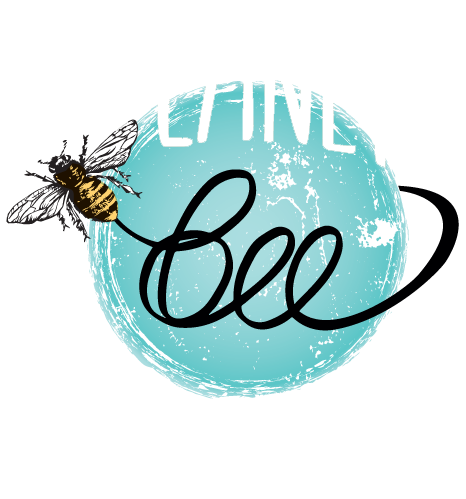Bridging Science & Service: Julia Garcia Herrera
- Melissa Marazas
- 7 hours ago
- 4 min read
Empowering Communities Through Environmental Education
This Volunteering Month, we’re spotlighting Julia Garcia Herrera, an SFSU College Corps Fellow and Planet Bee intern whose passion for education, sustainability, and equity is helping shape a more inclusive future for environmental science.
As an intern from Fall 2024 through Spring 2025, Julia has played a key role in making our Beeyond HarvestED curriculum more accessible—translating lessons into Spanish and scaffolding them for English Language Learners. But her impact extends far beyond the classroom. Let's learn more about her experience!
Pathways to Purpose: Finding Meaning Through Service
Can you start by telling us a bit about yourself and what inspired you to apply for the Planet Bee internship?

When I learned about Planet Bee’s mission to connect people with pollinators through hands-on learning, I saw it as the perfect opportunity to combine my passion for science education with environmental impact. I also serve in my church community, where my leader Maria Luisa Piraquive de Moreno—a Latina woman who’s dedicated her life to supporting marginalized communities internationally—has shown me that the gift of serving others is one of the most valuable contributions we can make. Serving with Planet Bee allows me to extend that same commitment to service into environmental education and community engagement.
What drew you to participate in the SFSU College Corps Fellowship, and how does it align with your career goals?
I was drawn to the SFSU College Corps Fellowship because community service is important to me. I believe being involved in your community is a powerful way to create change—especially by promoting education and access to STEM. My career goals focus on using STEM to empower marginalized communities, and this fellowship lets me apply my skills meaningfully while helping others grow.
Making Science Accessible
How do you see Planet Bee’s work contributing to environmental sustainability and the community?
Planet Bee plays a key role in sustainability by educating people—especially young learners—about the importance of pollinators and their role in food systems. Through school programs, corporate workshops, and outreach events, Planet Bee helps bridge the gap between science and everyday actions that support pollinator health. These experiences empower communities with knowledge and encourage more sustainable practices.
Can you describe a project at Planet Bee or experience where you helped raise awareness about environmental issues?
One of the most rewarding projects I worked on was scaffolding Planet Bee’s Beeyond HarvestED lessons for ELL learners and translating them into Spanish. This made pollinator education more accessible to Spanish-speaking students and families. As a Latina, accessibility in STEM is especially important to me—I’ve seen firsthand how critical it is to break down language barriers and promote inclusivity in environmental education.

Have you had any previous experience working in environmental education?
Before Planet Bee, I supported environmental education at the Golden Gate National Recreation Area, developing Spanish-language materials for the Rocks! Patterns! Systems! program. I also worked with science-led programming at Muir Woods, the Presidio, and Alcatraz. These experiences—combined with my academic background—have deepened my commitment to fostering environmental literacy in diverse communities.

Growing as a Leader in Environmental Spaces

As an SFSU College Corps Fellow, how do you see this internship helping you grow as a leader in the environmental space?
Since childhood, I’ve been fascinated by nature—especially geology and soil. This internship connects my interest in natural processes with real-world environmental challenges. It’s also helped me develop leadership experience by working with a passionate team. I see this internship as a launchpad to grow as a leader in environmental education and advocacy, which aligns perfectly with my career and personal goals.
Protecting Pollinators, One Step at a Time
What do you think is the most important issue facing bee populations today, and what steps do you think can be taken to help protect them?
One of the biggest threats to bees is habitat loss from urbanization and industrial agriculture. Pesticide use, climate change, and disease also contribute to bee decline. To help protect them, we need to advocate for pollinator-friendly policies, support sustainable agriculture, plant native flowers, and reduce pesticide use. Education is key! With knowledge comes caring, and from caring comes action. When people understand how vital bees are, they’re more likely to help protect them.
How do you incorporate sustainability into your daily life?
I limit single-use plastics, take public transportation or carpool, avoid eating red meat, and buy native flower seeds for my mom to plant. Now, bumblebees visit often!
Looking Ahead: Dreams, Degrees & Lasting Change
Where do you see yourself in the next five years, and how do you plan to use the skills and experience gained at Planet Bee in your future endeavors?
In five years, I see myself working with inclusive, accessibility-focused communities and pursuing a master’s degree. My Planet Bee experience will help me bridge the gap between science and underrepresented communities.

What advice would you give to someone who is thinking of volunteering or interning with Planet Bee? Why do you believe community service with Planet Bee is important?
Go for it! Planet Bee is an incredible organization that teaches you about pollinators while giving you hands-on experience in education and outreach. It’s a great way to build professional skills and make a real impact. Community service with Planet Bee builds environmental awareness, empowers communities, promotes sustainability, and inspires future generations. Small efforts create lasting change!
This Volunteer Month, we celebrate changemakers like Julia who turn passion into action. Her commitment to equity, education, and the environment reflects the heart of what volunteering is all about—making a lasting impact in the lives of others and the world we share.

